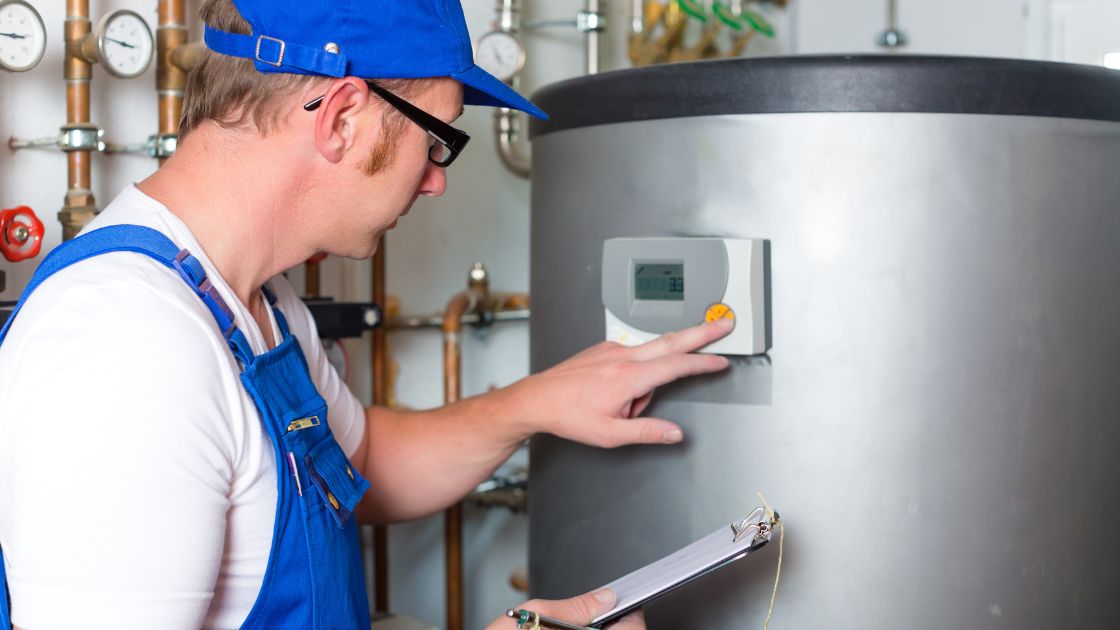Is it Time to Replace Your Hot Water System?
A reliable hot water system is crucial for every Australian home. But like any appliance, hot water heaters have a limited lifespan. Knowing when to repair or replace your system can prevent disruptions to your home’s comfort and convenience. This guide covers 9 warning signs indicating your hot water system may need replacing.
1. Rust and Corrosion
Rust, corrosion, or mineral buildup on the exterior of your hot water tank are clear visual cues that the system is degrading. As the metal components corrode, they become prone to cracking, leaks, and even explosion hazards. If your tank shows severe corrosion, replacement is likely the best option.
2. Leaking Water Tank
A leaking water tank is one of the most obvious red flags. Water pooling around the base signals failing tank seals or cracks in the body. Even minor leaks signal deterioration and should be inspected. Significant leaks can lead to property damage and mould growth.
3. Lukewarm Water Temperature
If your hot water lacks its normal scalding heat, the system may be unable to maintain temperature. Sediment buildup in the tank, a faulty heating element, or a broken thermostat could be the culprit. A plumber can determine if flushing and repairs or full replacement are warranted.
4. Metallic Taste and Odour
An unpleasant metallic taste or smell from your hot water could mean corroded interior tank walls and piping. This affects water quality and indicates a failing system. Flushing the water heater may help, but a new hot water system may be your best bet for clean, safe water.
5. Noisy Operation
Strange new noises like popping, rumbling, and banging emanating from your hot water system are cause for concern. Sediment accumulation can create noisy turbulence and reduce heating efficiency. Have a plumber inspect the sediment levels and condition of the tank.
6. Failing Drain Valve
If the water heater drain valve leaks or no longer functions properly, replacement may be required. The drain valve is essential for flushing the tank and making repairs. Replacing just the valve is often ineffective, as the tank itself is likely failing.
7. Increased Hot Water Demand
Has your hot water usage increased due to a growing family or a new washing machine? Insufficient hot water for your household’s needs indicates an underpowered system. Consider upgrading to a larger capacity tank or tankless water heater.
8. High Energy Bills
Spike in your gas or electric bills? Old tanks lose efficiency over time, costing you more in energy expenses. Newer energy-efficient models recoup their price over time in energy savings. Options like electric hot water systems or solar hot water systems can be great choices depending on your energy preferences.
9. Frequent Repairs
If you find yourself constantly repairing your hot water system, replacement may be the cost-effective solution rather than sinking more money into an unreliable system. Whether you choose gas hot water systems or another type, investing in a reliable hot water system installation can save you time and money in the long run.
Know When to Repair vs. Replace
While certain issues like sediment buildup, damaged valves, faulty thermostats or heating elements can be repaired, recurring problems usually indicate a failing system. Replacement extends the life of your plumbing for years of hot water on demand.
For professional advice on repairing or replacing your hot water system, rely on the experts at The Plumbing Life Saver. We’ll assess the condition and help you make the right choice. Contact us today at 0448 669 938.
Related article: How to Maintain Your Water Heater



